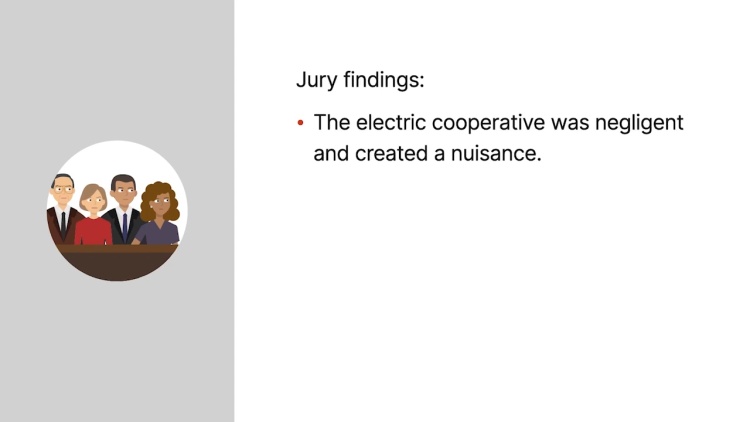Vogel v. Grant-Lafayette Electric Cooperative
Wisconsin Supreme Court
548 N.W.2d 829 (1996)
- Written by Megan Petersen, JD
Facts
Dale and Alice Vogel (plaintiffs) were dairy farmers who received their electrical supply for their dairy from Grant-Lafayette Electric Cooperative (GLEC). In 1970, after the Vogels built a new milking facility, they noticed many cows in their herd started acting strange and suffered from diseases that reduced their milk production. The Vogels began suspecting the cows were being impacted by stray voltage from GLEC. After being contacted by the Vogels about the problem in 1986, GLEC responded to the issue of possible stray voltage by installing an “isolator” at its transformer on the Vogel farm. After this, the health and behavior of the Vogels’ herd dramatically improved. In 1992, the Vogels brought suit against GLEC on theories of negligence and nuisance for the “annoyance and inconvenience” caused by the stray voltage. At trial, the jury found GLEC was negligent and had created a nuisance. It awarded the Vogels $240,000 for negligence and $60,000 for annoyance and inconvenience based on nuisance. The jury also found the Vogels guilty of contributory negligence amounting to one-third of the fault. The trial judge entered a verdict awarding the Vogels $200,000, and both parties appealed. The appellate court held that GLEC had not created a private nuisance, and struck the trial court’s award of $60,000 for annoyance and inconvenience. The Vogels appealed.
Rule of Law
Issue
Holding and Reasoning (Bradley, J.)
What to do next…
Here's why 899,000 law students have relied on our case briefs:
- Written by law professors and practitioners, not other law students. 47,000 briefs, keyed to 994 casebooks. Top-notch customer support.
- The right amount of information, includes the facts, issues, rule of law, holding and reasoning, and any concurrences and dissents.
- Access in your classes, works on your mobile and tablet. Massive library of related video lessons and high quality multiple-choice questions.
- Easy to use, uniform format for every case brief. Written in plain English, not in legalese. Our briefs summarize and simplify; they don’t just repeat the court’s language.





